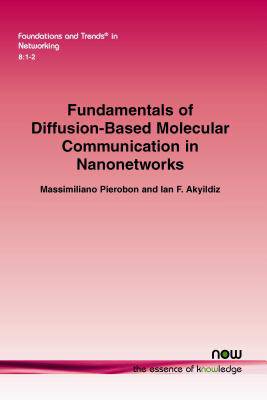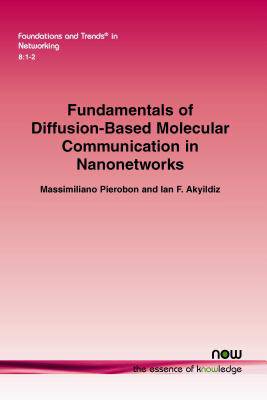
- Afhalen na 1 uur in een winkel met voorraad
- Gratis thuislevering in België vanaf € 30
- Ruim aanbod met 7 miljoen producten
- Afhalen na 1 uur in een winkel met voorraad
- Gratis thuislevering in België vanaf € 30
- Ruim aanbod met 7 miljoen producten
Zoeken
Fundamentals of Diffusion-Based Molecular Communication in Nanonetworks
Massimiliano Pierobon, Ian F Akyildiz
€ 82,45
+ 164 punten
Omschrijving
Molecular communication (MC) is a bio-inspired paradigm where the exchange of information is realized through the transmission, propagation, and reception of molecules. This paradigm was first studied in biology, since it is successfully adopted in nature by cells for intracellular and intercellular communication. MC is considered a promising option for communications in nanonetworks, which are defined as the interconnections of intelligent autonomous nanometer-scale devices, or nanomachines. Thanks to the feasibility of MC in biological environments, MC-based nanonetworks have the potential to be the enabling technology for a wide range of applications, mostly in the biomedical, but also in the industrial and surveillance fields. Fundamentals of Diffusion-Based Molecular Communication in Nanonetworks analyzes the MC paradigm from the point of view of communication engineering and information theory, and provides solutions to the modeling and design of MC-based nanonetworks.
Specificaties
Betrokkenen
- Auteur(s):
- Uitgeverij:
Inhoud
- Aantal bladzijden:
- 164
- Taal:
- Engels
- Reeks:
- Reeksnummer:
- nr. 23
Eigenschappen
- Productcode (EAN):
- 9781601988164
- Verschijningsdatum:
- 23/04/2014
- Uitvoering:
- Paperback
- Formaat:
- Trade paperback (VS)
- Afmetingen:
- 156 mm x 234 mm
- Gewicht:
- 240 g

Alleen bij Standaard Boekhandel
+ 164 punten op je klantenkaart van Standaard Boekhandel
Beoordelingen
We publiceren alleen reviews die voldoen aan de voorwaarden voor reviews. Bekijk onze voorwaarden voor reviews.











